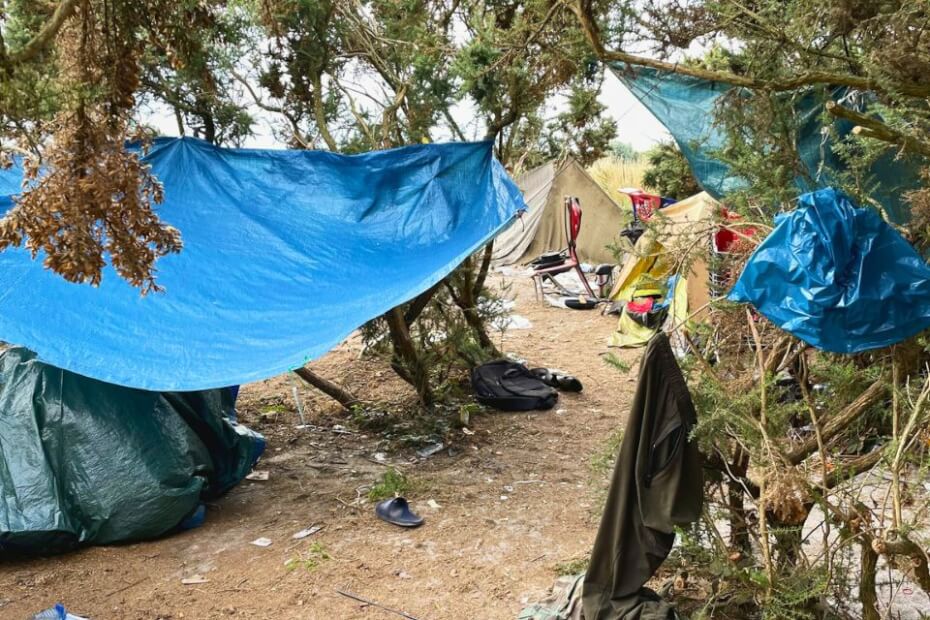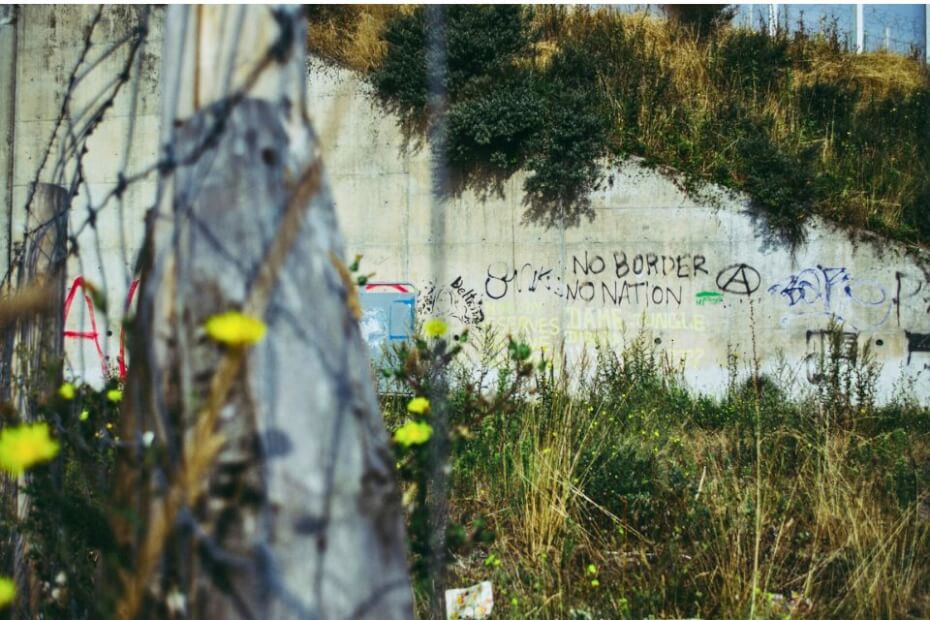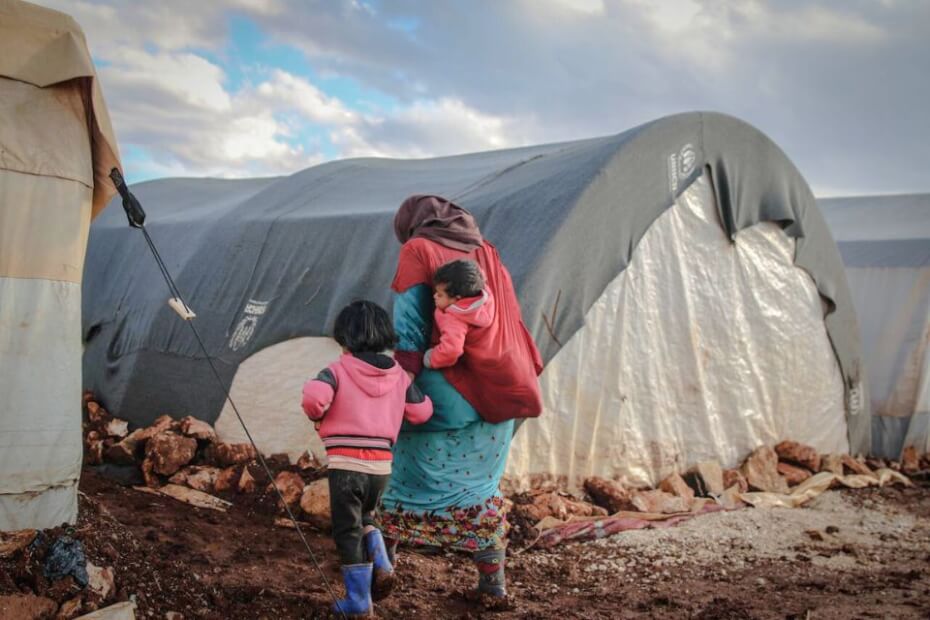
The United Kingdom’s (UK’s) Prime Minister, Sir Keir Starmer, insists on maintaining British border checks in Calais, France.
This comes after French mayors from northern towns urged their government to scrap the arrangement that allowed it.
The mayors cite the UK’s worsening migrant crisis with its inefficient asylum system and failure to address illegal working.
The Le Touquet Agreement and Calais border checks
Under the Le Touquet Agreement, UK Border Force officers can conduct immigration checks in Calais before passengers cross the English Channel.
Known as “juxtaposed controls,” this arrangement was signed in 2003 and is designed to simplify border management and enhance security.
However, French mayors in the northern Opal coast, including Calais and 14 others, argue that the arrangement unfairly shifts the burden onto their towns.
This leaves local French authorities to deal with growing numbers of migrants attempting to reach the UK.
Calais Mayor Natacha Bouchart has been particularly vocal, stating, “We’ve got to get to grips with the British, that’s enough.”
French Mayors’ growing frustrations

The coalition of French mayors has called for the Le Touquet Agreement to be renegotiated or abolished entirely.
The group, led by Calais Mayor Natacha Bouchart, has accused the UK of hypocrisy for wanting to stop boat crossings while accepting almost 70 percent of the illegal migrants.
In a joint statement, the mayors criticized the UK for what they see as its failure to manage illegal migration.
The claim that the UK’s slow asylum processing and policies on illegal work encourage migrants to gather in northern France.
They cited Britain’s failure to crack down on illegally hiring undocumented workers, which acts as a “pull factor” for migrants.
This situation has resulted in overcrowded camps, straining nearby towns’ local resources.
In response, the French mayors have called for establishing “humanitarian centers” away from the French coast.
They are urging Britain to establish “legal routes” for migrants to cross the Channel to avoid fueling people-smuggling gangs.
This year, more than 33,000 migrants have crossed the Channel illegally so far, already higher than the whole of 2023.
Additionally, about 60 have died trying to make the crossing since the start of the year.
Subcontracting French officials to protect British borders
Under the Conservative Government, the UK signed a £500 million deal to fund French police on the beaches to counter illegal crossings.
Initially, successful attempts dropped by a third, but they have now significantly increased by 20 percent since last year.
Bruno Retailleau, the new French interior minister, stated that the UK can no longer “subcontract” Channel border security to Paris.
He blamed Brexit for damaging UK-France immigration cooperation. He said they are ready for a “showdown” over border security.
“I hope it won’t come to that, but we have to change this relationship,” Retailleau said in a report by The Telegraph.
He urged a comprehensive agreement between the UK and the European Union (EU) before his meeting with Home Secretary Yvette Cooper on December 9.
Retailleau said that renegotiations should not center on money but on the effectiveness of strategies to stop illegal crossings.
“France cannot tackle this issue alone. The UK must play its full part, as must our European partners,” the French minister declared.
Prime Minister Starmer stands firm in keeping Calais border checks
Despite the calls to abolish it, UK Prime Minister Starmer insists that the current arrangement must remain in place.
He said checks are vital for UK border security and effective migration management.
“I’m taking this up with the French authorities because it’s a very important provision,” he said, as per a report by the BBC.
Starmer stressed his concern, adding that he is “determined to make sure that we get the checks where we need them.”
UK Home Secretary Cooper acknowledged that the UK needed more decisive action against illegal work.
She stated that when the new Labour Government took office, migrant crossings had already significantly increased.
Humanitarian concerns

Many migrants fleeing war or poverty live in makeshift camps around Calais while they wait for a chance to cross the Channel.
Conditions in these camps are often dire, with limited access to basic necessities and frequent police raids.
French police surveillance has forced smuggling boats to spread out further along the coast, launching from new beaches to avoid detection.
This tactic has seen migrants take longer and more dangerous routes, increasing their risk of death.
Humanitarian groups and refugee charities have called for both governments to prioritize the well-being of migrants.
They also demanded the creation of safe and legal routes for asylum seekers to come to the UK from France.
However, this has been rejected by the Labour Government, according to a report by The Independent.
The next steps
This issue has been a distress call for more collaboration across Europe to manage migration flows more effectively.
This includes not only border management but also addressing the root causes of migration in migrants’ home countries.
The UK Government has pledged to speed up asylum processing and implement stricter measures against illegal employment.
Starmer has pledged to reduce the number of migrant crossings by targeting the criminal gang that facilitates the journeys.
The UK has invested £150m over two years to fund its new Border Security Command (BSC) to lead and accomplish this goal.
It has also signed agreements with countries to stop people from leaving their own countries in the first place.
The Home Office is also delivering a major crackdown on employers who violate working visa policies and abuse other visa rules.
As tensions rise, both the UK and France must find a way to balance their security concerns with humanitarian obligations.
Britain is unlikely to abandon its border checks in Calais, as the Le Touquet Agreement remains a critical part of UK border policy.
The negotiations may focus on providing more financial support for French authorities or increasing cooperation in tackling illegal work.

